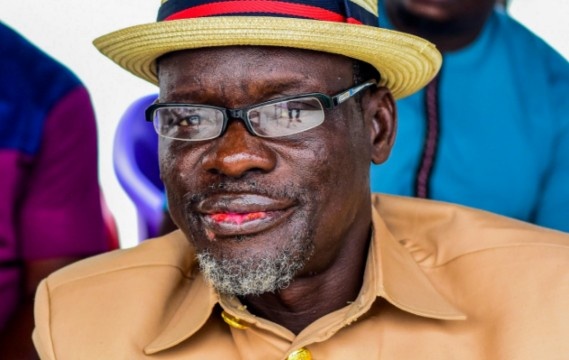AMAZING: The Nigerian Cook Who Incidentally Spent 60 Hours at the Bottom of the Atlantic Ocean
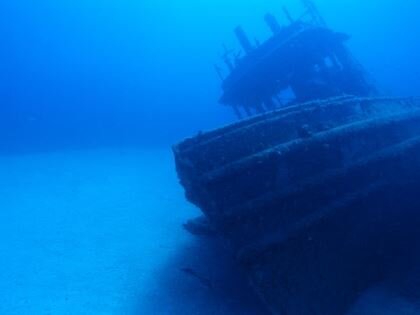
Did you know that Harrison Okene, a cook, survived two-and-a-half days trapped at the bottom of the Atlantic Ocean when the boat he was traveling in sank 30 metres below its surface?
Harrison Okene, a Nigerian man, turned out to be the sole survivor of a tug boat which capsized and sank to the bottom of the Atlantic Ocean off the coast of Nigeria. Okene, who, then, a cook by profession, survived underwater for nearly three days. Read on to find out how the incident occured and how he escaped death.
Okene was an occupant among a 12-man crew in the Jascon-4, a tugboat which found itself navigating through turbulent black waters around 30 kilometres off the coast of Nigeria. Its mission was to secure a large oil tanker loaded with gasoline from the nearby Chevron Nigeria Limited's oil platform. The date was Sunday, 26 May 2013.
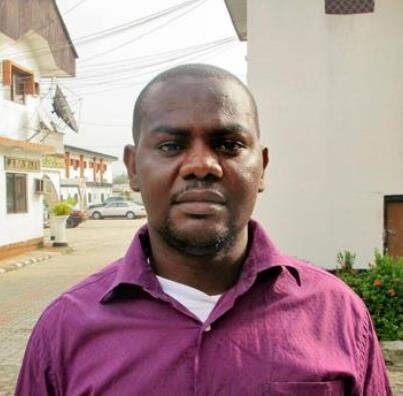
Recounting the incident later to 9news.com.au after he had been rescued, Okene said that he had just woken up and was in the toilet when the disaster struck. According to him, a towering wave smashed into the side of the boat just before 5am, causing it to capsize as water started to pour into the vessel, filling the cabins and winding passageways.
Okene who attributed the incident to bad weather said, "Before we knew, we were sinking. It was very bad weather. We had been sailing for many years, we knew the sea, we had never had any issue before."
Escape was made difficult for the cook as a couple of doors had been locked in a bid to deter potential attacks from pirates. The cook, left with no choice, sought refuge in the ship's officer's cabins where a wall of water forced him into the room's adjoining toilet. There, something akin to a miracle occurred as the boat settled in its watery grave—an air pocket formed, giving the then 29-year-old precious oxygen to breathe. Though he tried to find a way out several times, he eventually ended up tracing his way back to the air pocket with a rope he had found. And so Okene waited and he watched in the dark and cold.
After 60 hours, he saw something he had given up hope of ever seeing—light had pierced through the black water. That light belonged to the torch of South African diver, Nico van Heerden, who, along with a crew from DCN (a global diving company) had been sent by Chevron and West African Ventures to retrieve the bodies of the crew. In total, 10 bodies were recovered—the 11th was never found.
Very gently, Okene reached out to van Heerden and tapped his gear, careful not to startle him. Okene and van Heerden clasped hands before they saw each others' faces. But even though Okene had been discovered, his ordeal was far from over. Due to the time he had spent at depth, he needed to do lengthy decompression stops to avoid decompression sickness (also known as the bends) when nitrogen bubbles form within the body's tissues and bloodstream.
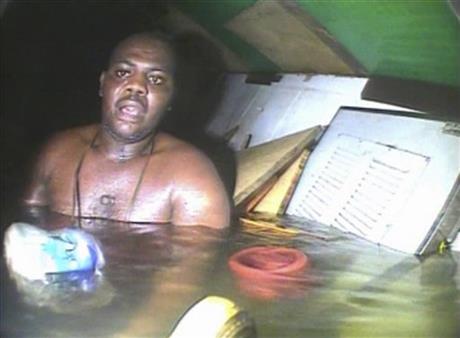
According to Alex Gibbs, a life support technician on duty on the surface during the rescue, said: "I was shocked and then a bit excited. It was certainly unexpected, especially after nearly three days and seeing all the bodies coming up. Nobody thought there was anyone alive. (But) there were a lot of concerns."
Okene had also never dived before, and there was another medical complication unfolding. "He was close to dying when we found him," said Gibbs, explaining Okene was in the first stages of hypercapnia. "Contrary to popular belief, when people are trapped in confined spaces it is not the oxygen running out that will kill you, it is your own exhaled breath causing a build-up of CO2. By the time he had been found, this was at a clearly high level."
Okene was given a mix of oxygen and helium to counteract the hypercapnia. Despite being exhausted and overwhelmed, Okene somehow proved a natural diver. At the surface he was transferred to a diving bell, under pressure, then locked inside a decompression chamber, where Gibbs tended to him for days.
"I looked after him the entire three days before he was decompressed and out," Gibbs said. "I delivered his food, changed his bed linen, gave him medicine and acted as the go-between from him to doctors, managers and shoreside office. He was constantly monitored. It must have been a huge shock and bewildering experience for him."
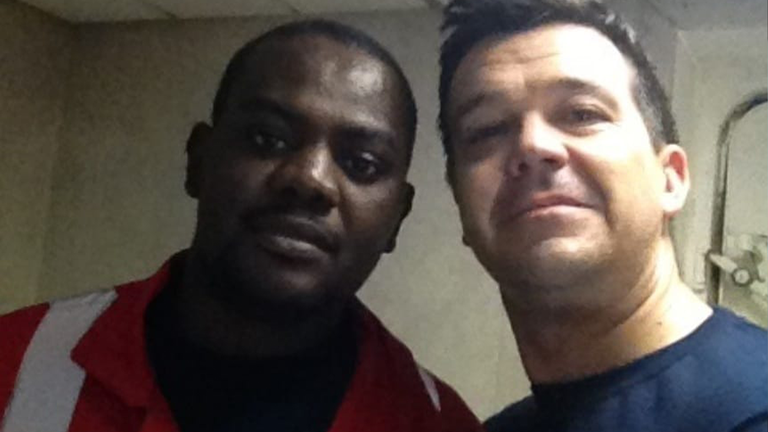
On what the experience was like being at the bottom of the ocean for days, Okene said: "Underwater it was so, so, so, cold. I was struggling to stay alive, wondering how long it (the air pocket) would last me. I was thinking about my family, my wife; what would happen? How would she live? How can I get out? Thinking about my life as well. I was praying a lot."
For years, he relived his time beneath the ocean through recurring nightmares. “When he is sleeping, he has that shock, he will just wake up in the night saying ‘Honey see, the bed is sinking, we are in the sea,’ ” his wife would say.
Too afraid to return to the ocean, the former cook on a fishing boat took a chef’s job on dry land. But he was unable to put the event behind him. So he decided to face his fear head-on. In 2015, he returned to the ocean. This time, not as a cook but a qualified diver. It wasn’t a hobby that Okene wanted. Rather, he was motivated to become a rescue diver, to save the lives of others who found themselves in desperate straits underwater, as he had been.
Okene is currently an IMCA Class 2 Commercial Air Diver. His Facebook page has become an unofficial search and rescue tribute feed. Here, he expresses passionately how he wishes for changes in safety at sea. His YouTube channel has more than 2,000 subscribers.
Okene has a message for anyone who finds themselves fighting for survival: “The fear alone can kill you,” he said. "I took fear off me, and I believed that 'what will be, will be'. Believe in yourself and keep your faith and your mind strong."
Source: 9 News | Explorers Web
Culled from 'The man who survived two-and-a-half days trapped on the bottom of the Atlantic Ocean' By Raffaella Ciccarelli
#penglobalentertainment


